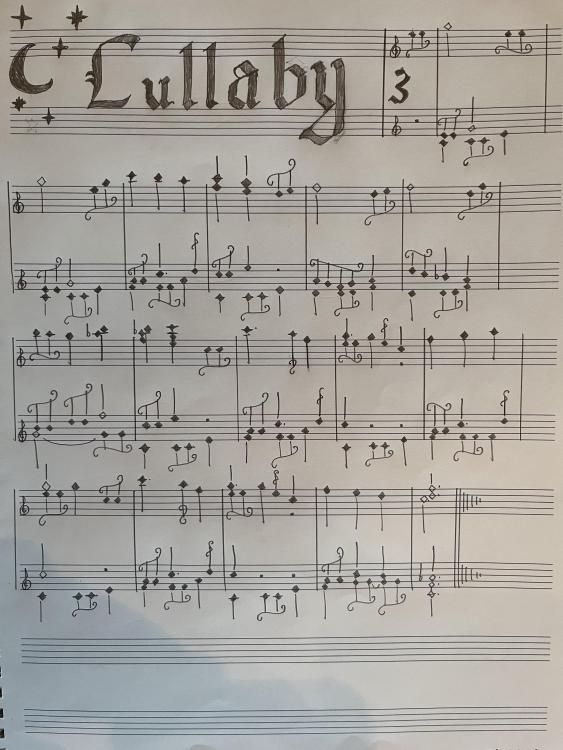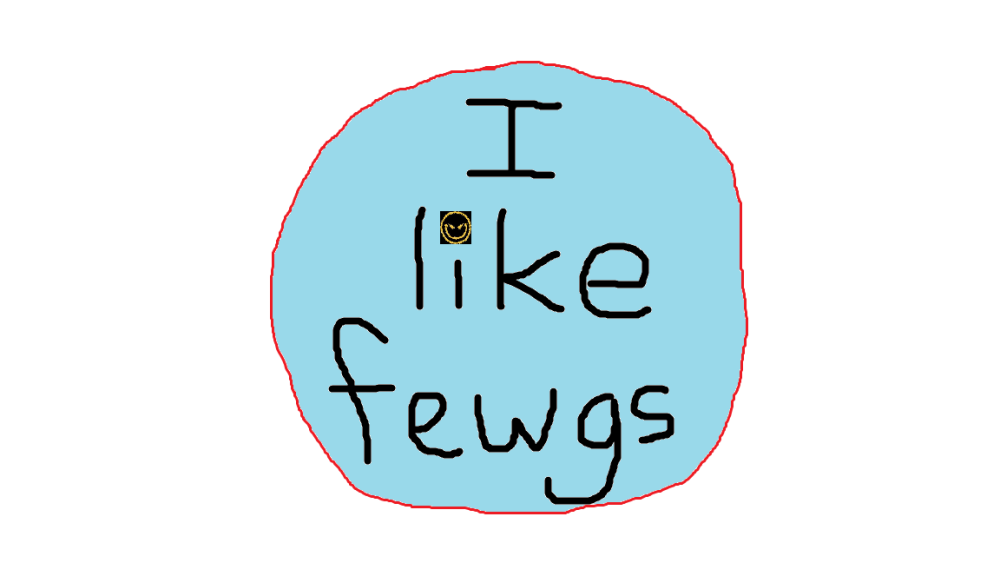Leaderboard
Popular Content
Showing content with the highest reputation on 01/18/2024 in all areas
-
A subgenre of Romanticism has caught my attention: the dream (Rêverie, Träumerei). I have searched quite a few, apart from the most famous ones trying to find some common elements. True, it is sometimes difficult to separate the Nocturne from the Rêverie, or from the Barcarolle, etc..... Except, perhaps, for the composer's intention. Anyway, I composed this:2 points
-
Woah, weird to hear I was being talked about and discussed. Would love to see that conversation. Is there some place on discord someone shared my work, because the YouTube link has been getting a lot more views than I thought it would? These past few months, I actually have really clicked with improvisatory music and the idea of arranging soundscapes through less-controlled means. You are still able to construct a song with meaning, purpose, and structure, but the end result is something different than these written down / more controlled means of music-making give. In a big way, my approach to this piece was applying this new appreciation I have for sound arrangement into my written music. Now, this piece was a direct order from my teacher to be designed to "win competitions," so he gave me a plethora of rules. I wasn't allowed to use box notation, because apparently it is more impressive to see everything written out note by note. I had to make it constantly attention grabbing, and it had to be at the highest quality output for any idea I wrote down. While so much of this piece is technically extremely difficult, it was my way of expressing this newfound improvisatory chaos that has been building inside of me. There is no way for any of these rhythms and gestures to be performed perfectly, but the intent behind the jumbledness (or togetherness, at times) allows for less stress beyond the notes IF it were to be performed. When I was first starting this work, I was still in the process of being broken. I was still a bit scared for my supporters and possible listeners to be scared off by me leaning into what my teacher was pushing me to be. But, at one point, I realized I just want to create something more than happy minimalism. I want to create that really gritty gently caressed up stuff that just sounds cool (which is why I am so excited for the electroacoustic phase I can feel is about to happen with me). I am not saying I did that or not with this work, but I wanted to push myself to grow. I wanted to push myself really hard to implement my ideas in a mindset I had never done before. Everything displaced, everything muddied, and gestures / soundscapes that I experimentally crafted piece by piece. I know there will be pieces beyond this one, and they will each have different intents and purposes behind them. But, I think for this one, it was for me primarily. I just wanted to really invest myself in this as an educational tool and form of self-expression, inviting people into what emotions I felt like conveying. In this case, I wanted to create something powerful, off the walls, anxiety-inducing, and constantly stressful. Within every idea I had, there was an opportunity to keep it digestible and normal. But, that was the challenge of this work, and the namesake to it. To take every idea I would normally write and express it differently. I have elements of minimalism all throughout, but I just layered, spliced, deleted, and transposed a bunch of it in a way old Evan would scoff at. Each idea is still wholly me, but I could not cave in to doing it the lazy way in this piece. And, about a month and a half into the process (and two years of composition lessons TRYING to accept this teaching), it finally clicked for me. I could naturally write out these ideas in a way that fit the growing narrative of the work, and I could arrange the notes on the page to create what my heart sought in a section. I have honestly been pleasantly surprised to see any positive feedback to what I have created. It means a lot to have people open to listening, and from that, finding things within that speak to them. That is always what my music has been about, regardless of the maturity of how I express an idea. Thanks for taking the time to listen and write to me. Hopefully this string of thoughts gives some context to the work.2 points
-
An orchestral piece inspired by a science fiction story I wrote some time ago about two astronauts who discover animals made of exotic matter on an unknown planet. I hope you like it.1 point
-
I originally thought of starting a topic called "Why do you compose?" But a quick search reveals 5 pre-existing topics that have repeatedly asked that same exact question over the years here at Young Composers Forum: So if you want to know why people here compose just peruse those old topics... Just kidding!!! 🤣 But seriously - who do you compose for and what do you expect? I mean it's obvious that composers and people in general are social creatures and yearn for the approval of others around them. Or do you completely ignore other people and society when you write music and yearn only to express your own inner inspiration? For me I think the old sociological truism of "Society in Man" applies. I feel that societies popular musical tastes have to some degree become my own so when I compose music I reflect in that music some of the popular (as well as more unpopular) musical norms. So of course from my own perspective, I just write music for fun (and that goes with my musical philosophy about music in that I believe that all music is basically playful). I write for my own enjoyment but I consider that to be in common with my contemporary audience which I feel some satisfaction in saying has to some degree also enjoyed my works. But it could also be a detriment if a composer composes for attention seeking or places other's opinions above their own. What do you expect from others? Do you have healthy boundaries? How do you react if someone expresses an unfavorable opinion of your music? And how important are the opinions of others in your musical self worth as a composer?1 point
-
Thank you everyone so far for your submissions! Let's keep them coming! @Thatguy v2.0 @Henry Ng Tsz Kiu @PeterthePapercomPoser @Omicronrg9 @CashComposer @Gwendolyn Przyjazna Feel free to tag more people who you feel may want to join! The examples don't have to be that long. 30 seconds to a few minutes is fine.1 point
-
I LOVED how @PeterthePapercomPoser explained it!! BRAVO! Hmmm... this makes perfect sense. How about this: Now that the assignment is done, fix it how YOU want it and get it played! I had to do that for several of my pieces to "pass." I then went and did it the way I wanted, and it got played and my personal approval.1 point
-
@PeterthePapercomPoser @Henry Ng Tsz Kiu Thank you for listening. I put a lot of personal emotion into this little piece. I understand that some parts can be difficult to execute, because of the distances between the voices, but .... if one sees what the Romantics wrote, this is nothing. What I like about Romanticism is that everything can be very subtle. And also unexpected, like strange modulations, frequent use of diminished and semi-diminished, enharmonies. It's fascinating.1 point
-
Hey @Gabriel Carlisle, What mood do you want it to be? Lovely, gorgeous, grand, happy, tragic, painful, solemn? The setting of mood helps your finding the right inspiration. Do you want to include some narratives? Do you find particularly likings to some chords and harmonic progression? What’s the tempo? How thick and quick do you want your piano accompaniment is? How many percentage would you give the melody to the piano? How chromatic will you want the melody be? What key is in it? What form will it be? Ternary or other forms? Which composer’s works do you want to imitate from? Hope these questions help! Henry1 point
-
Hey @Luis Hernández, I love the opening! It’s indeed a peaceful dream form me with that lovely Db major reminds me of Chopin’s only Berceuse which is also dream related for me. The modulation to C major is unexpected but well handled as well by you. One thing I noted is that it will be hard to play the first section with serene mood, giving how far away the notes are, though it definitely is not impossible. The sound would be different than the computer rendition here though. That half diminished chord in b.47 is very lovely!!! It’s also very clever of you to return to the opening key of Db major (enharmoncially C sharp major here)! Thx for sharing! I love this one. Henry1 point
-
A very upbeat swing piece I made, I hope y’all enjoy. Please let me know what you liked and what needs work. Thank you 🙏1 point
-
Yo Peter, What a nice topic you have made! (And I won't reply to any of those above except share it to my dear Papa Peter) FIrst of all I am again the opposite of your own view! I never believe all music is basically playful haha. That's one of the Kantian conception of art as the playing between knowing faculties I don't agree on. I indeed write for my own enjoyment but only for my own enjoyment. I think I do absorb things from the contemporary issue: wars, tragedies everywhere, joy everywhere, human classics which include music and literature and others, but all are absorbed by me and it's me who want to express myself. I sometimes can become attention seeking especially after finishing a work as a part of my post partum syndrome after writing a work, but I think the real me inside isn't like this! When I write I make sure I pay my 200% attention to my wiriting. It's painful but honestly I enjoy it. It sounds masochistic, but I enjoy the most when the music I am writing gives me the biggest pain! All the struggles are of course very painful and tedious, but that's what I strive for since I know that only through painful writing I would write good music, as I am no genius like Mozart but just a normal guy. I really cannot decipher whether my inspirations are from myself only or from the society or from the world. I don't care where does it come from. What I expect is that I really write good music and not bullshit and trash. I hate writing with the sake of writing it only as I wanna always express my feelings and thoughts through my music. I also expect the music I composed can heal myself and give myself some meaning to live in the world, as they are unique, as everyone is but when you create some unique works into the world you prove yourself you are unique. I know mentally strong people don't require these kind of things, but I am for sure not one of them haha. Henry1 point
-
When I listen to this music I imagine a quaint little village in the woods. I could also easily see a sleeping child in its crib. This would have been perfect for our "Dreamscapes" competition that we just had! I can see why it could also be called a Barcarolle or Nocturne, but I think your title is good. I would have done the same thing - pick the most familiar and accessible title to my own culture/language. Thanks for sharing!1 point
-
Hi @maestrowick, Thx for your comment! I think the clash of B natruals and B#s are more like false relation. The inspiration of the clash of them right at the point of subject entries for me comes from Mozart's Fugue in C minor for two pianos: And honestly I think it would be great for the performers to constantly ask me things if it would really be performed!! So in your opinion having a clash of false relation would be a harmonic incosistency? Personally I think the Transfigured Night has way more tone clashes! Thx for your review! Henry1 point
-
I had a very interesting discord conversation about this piece that helped me to formulate what I'm going to say in this review. I admire your fresh approach, inclusion of microtones and of all this huge plethora of percussion instruments that helped add more "noise" to the cacophony and chaos (which I think was your intention). I expected something along the lines of Webern's total serialism or something but was pleasantly surprised since this kept my attention and was actually inspired rather than derived from serial rows or some other such atonal gimmick. You had actual gestures that you deliberately sculpted much like Stravinsky would have sculpted his gestures. Granted there seems to be more chaos to your gestures. Stravinsky's music also could actually be hummed (or the rhythmic gestures can be performed by any amateur since they're quite accessible and memorable). Stravinsky also included accessible folk melodies amidst his chaos which kept his music from totally losing control and becoming incomprehensible. I don't think your music is totally incomprehensible either though. Like for example, I think there is a clear climax towards the end of the piece that clearly signals to the listener that the piece is ending and it doesn't end in an arbitrary place. And I like the short piano denouement that follows the climax - I think it fits. But I do wonder if you could have achieved what you wanted to achieve (as in - pushing the envelope of the instruments and players capabilities) while also throwing in some more accessible elements. I like the analogy of the video game - a good video game is neither too easy (or it would be boring without any challenge) nor too hard (or it would be frustrating and not fun). Likewise, a good innovative musical composition that still hopes to gain popularity is neither too conservative (as that wouldn't add any novelty to the experience) nor too new and wild (as that loses the audience and potential of converting likely conservative listeners to your more liberal musical cause). I'm not sure if my analogies and comparisons with Stravinsky are on point. I think the points I make though will (in my opinion) be more likely to result in the composition of works with more lasting musical and historical value. Let me know if you agree or not. Thanks for sharing!1 point
-
Here are my two variations! Since no one is bothering to state the theme at the beginning, I too neglected to do so. I guess these variations will occupy the slots meant for the harmonically simpler ones!1 point
-
Here's my submission It's harmonically simple which made for easy application of the stretto-like things, and I also feel like the simple harmony made the last chord stand out better. I think I got the idea for the figure that appears here from one of Byrd's variations in his setting of "The Hunt's Up", which is not a lullaby but a wake-up call, so kind of ironic there (and you could find the hunt's up on my youtube channel if interested.)1 point
-
Thanks for reminding me of this. I haven't heard it in a long time, and I forgot how genius it is. You told me your philosophy professor said this "fell flat". Did they not see all of the sharps? Just kidding, but I'd have to disagree with them. I think a lot of your decisions about texture and rhythmic selection could be attributed to you keeping the grand scope of the entire work in mind. Like, this is a long fugal section within a movement WITHIN the whole piece. And from what I remember from the vibrant first movement, this was a smart choice. Plus if I'm not mistaken, in the second movement there will be parts before and after this? Maybe if your professor had heard the work in it's entirety they would have a different opinion? I personally think it stands alone wonderfully. You know I don't really care for fugues, but I got a lot of enjoyment hearing this one. Your piece had lots of pain to me, I could feel the power very easily (especially at bar 106). In other moments you give us brief glimpses of sunshine, but overall it aches of sorrow and dark tones. I like how I liked (what a dumb way to say this...I'm keeping it) the music more and more as it went on. I'm not sure how to explain that, and I wasn't analyzing every damn note to see if it fell under whatever rules it needed to. Your writing seemed more confident as the piece went on. My favorite part is near the 7 minute mark, where you introduce themes from the first movement briefly, until giving us a bit more sadness and tension to the end. I've listened to the first movement tons of times, so it was fun to hear trickles of it, keeping me guessing how you'll finally end this massive work! Only when I get to hear the whole thing as a whole will I understand your vision with this, but from what I've heard so far, I'm on the edge of my seat with anticipation for that day. Brilliant job Henry, I know the grueling counterpoint you tediously and meticulously went through was probably agonizing. Regardless of where this piece in particular goes, just remember how much better at your craft you have gotten with such a momentous challenge accomplished. Congratulations, you are being gifted my patented new badge.1 point
-
so anyway I'm not sure if I have complicated things non-harmonically with these 2 variations I whipped up tonight, but hopefully there will be approaches both simpler and more complex than these, see if these ideas fit pcc variations brahms lullaby.pdf pcc variations brahms lullaby.mp31 point



.thumb.png.8b5b433a341551e913a34392660bc95b.png)






